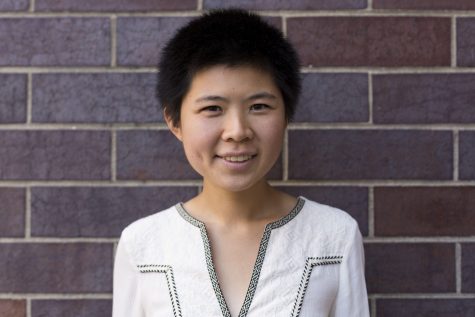Safe Spaces: The New Cryptic Buzzword
The conversation over safe spaces was sparked again following a UChicago decision.
September 6, 2016
The conversation over safe spaces on college campuses once again broke national news last month when the University of Chicago penned a letter to its incoming students saying that the school does not support trigger warnings or safe spaces. Discussion of the letter eventually circulated among NYU student groups as leadership training commenced over the summer, focusing on the facilitation of safe spaces, trigger warnings and inclusive language.
Many NYU students held equivocating opinions about this political correctness, since these supposedly beneficial environments also spawn negative side effects, ranging from false consent to distorted expectations.
Tisch freshman Lacey Coleman experienced safe spaces at NYU through the weeklong service program Project OutReach, and she said that while safe spaces are important, they need redefining. Coleman believes that there is a contradiction with the modern definition of a safe space.
“It’s a place designed to ensure that individuals can seek refuge from ‘unsafe speech,’ confrontational speech or any speech that makes them feel uncomfortable. Yet it’s also a place where people should feel free to ask questions,” Coleman said. “So often, the proponents of safe spaces encourage this inquisitive atmosphere, but the harsh reality of people asking questions is that it may come off as offensive or not politically correct.”
She said this buzzword is too often used as a way to shut down ideas unaligned with mainstream beliefs, and she questioned whether the space is actually safe anymore. Therefore, she said a method of open communication is necessary and that rather than using safe spaces as a temporary solution, people should focus more on a permanent solution to acknowledging and respecting all forms of speech.
Banned phrases and words included freshman, guys, study abroad and homeless people, respectively replacing them with first-years, everyone, study away and people experiencing homelessness.
CAS sophomore Rachel Levy also believed that the extent to which people take politically correct language has changed the entire narrative of safe spaces into a joke, such as the laughter from fellow leaders that followed if someone accidentally said freshman.
“The whole point of the human experience is to always keep learning and to always challenge yourself, but a safe space doesn’t always adhere to that philosophy,” Levy said. “If you go across the country or across the world, people think different things, and I think a safe space is not really something the country needs when people grow up in a bubble.”
However, Stern sophomore Toyosi Oyelola thinks that rather than sheltering people, safe spaces help students who are already often marginalized. She went through training to promote inclusiveness as a 2016 Welcome Week leader, and she said that she understands the reasoning behind not using certain trigger words.
“I am working on being more careful with my language, especially as I take on more leadership roles and work with new people, because using y’all instead of guys referring to a group isn’t a big deal, and it’s pretty easy considering that I’m from Texas,” Oyelola said. “If these minor changes in my vocabulary make someone feel respected, valued and welcomed, then I am absolutely willing to make those changes.”
Oyelola said that while she still slips up, she tries her hardest to avoid possibly offensive language, and she said that everyone should have a place to express their feelings and experiences. Coleman believes that personal safe-spaces could start with finding like-minded communities.
“You should strive to surround yourself with people who do feel the same way as you if you are struggling with something. But we shouldn’t have publicly mandated places where people are too easily offended and scared to ask questions,” Coleman said. “There’s a difference between hate speech and freedom of speech.”
A version of this article appeared in the Tuesday, Sept. 6 print edition. Email Diamond Naga Siu at [email protected].




























































































































































